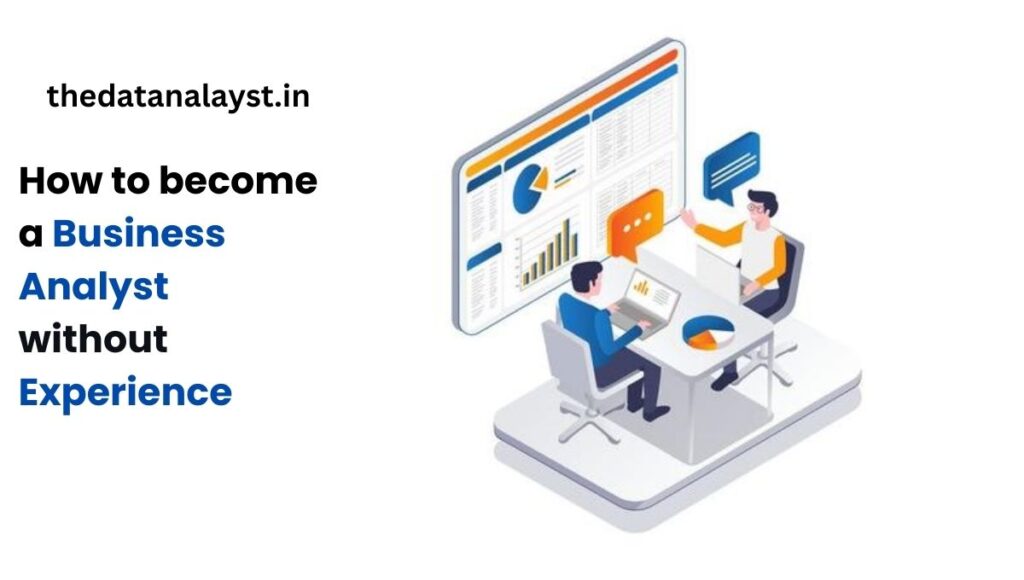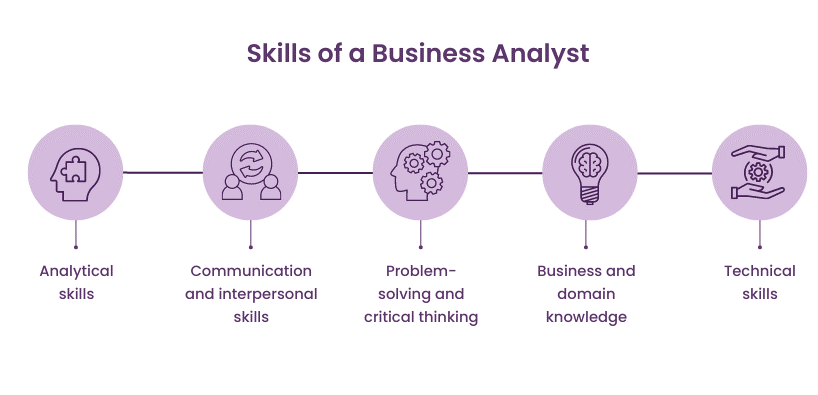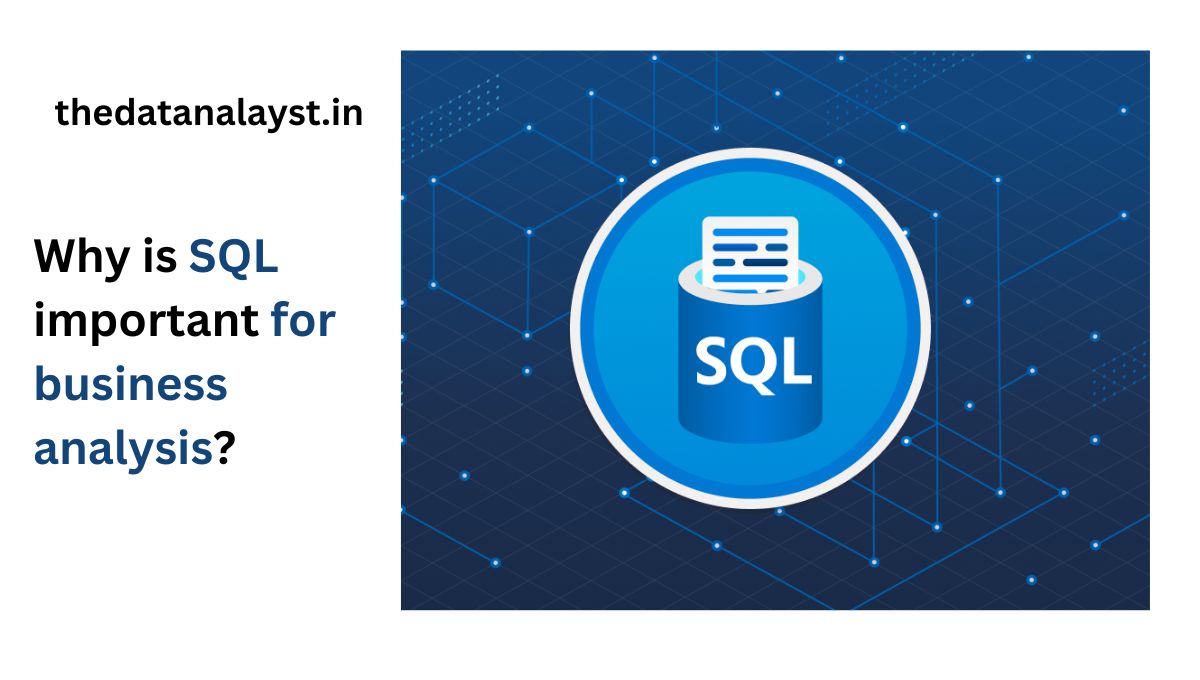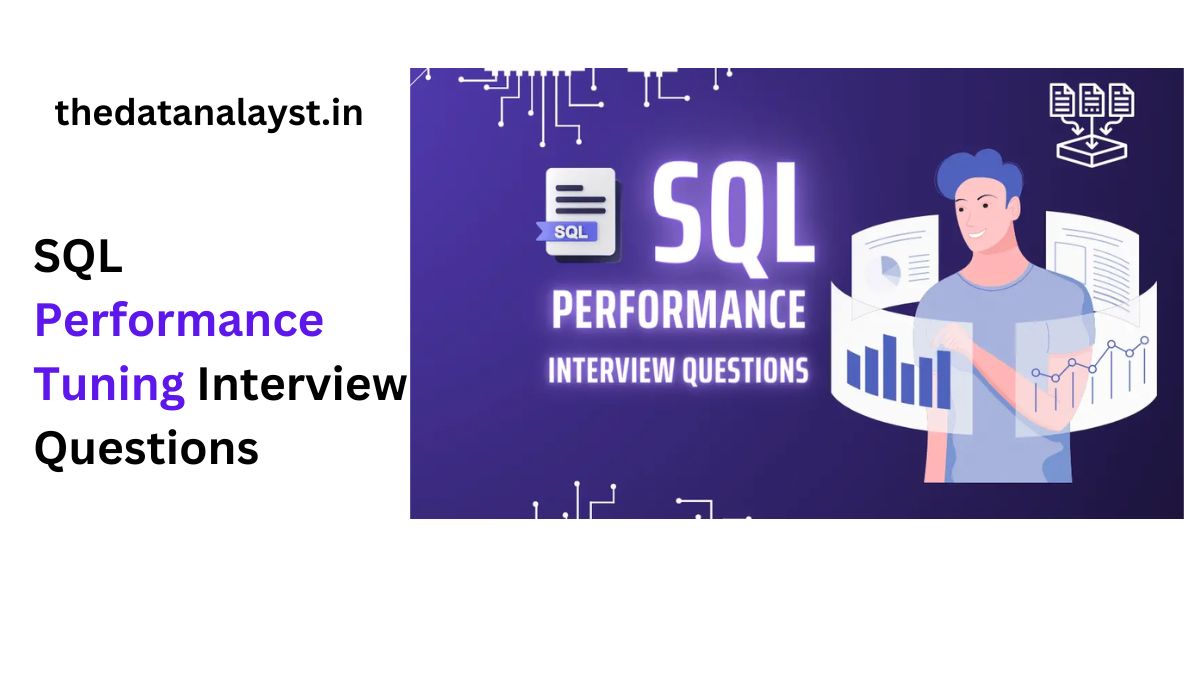Are you looking to break into the exciting world of business analysis but worried about your lack of experience?
Do not worry if you do not have prior experience, this guide will provide you with a clear roadmap on How to Become a Business Analyst with No Experience and get your first job as business analyst.

What Does a Business Analyst Do ?
A business analyst (BA) removes the gap between IT and business objectives by analyzing the data and derive insightful solutions that drive business growth.
Responsibilities of a Business Analyst
A business analyst needs to following tasks to generate insights for the business
- Stakeholder Communication: Working closely with stakeholders to understand their needs.
- Identifying business needs: Understanding the stakeholder requirements and using them to better understand business needs.
- Requirement Gathering: Defining and documenting business requirements.
- Analyze the data: They collect, analyze, and interpret data to identify trends and opportunities.
- Data Analysis: After analyzing the need to interpret so it can be used to make informed decisions.
- Problem-Solving: Developing strategies to optimize business performance.
- Developing solutions: They propose and design solutions to address business challenges and improve efficiency.
- Communicating effectively: They collaborate with various teams, including IT, management, and end-users, to ensure successful project implementation.
6 Skills Needed to Become a Business Analyst
You don’t need prior experience to start learning and building the skills required to be a successful business analyst.
To excel in this role, you’ll need a combination of technical and soft skills

- Analytical Thinking: The ability to analyze complex data and make recommendations.
- Problem-solving skills: The capacity to identify and resolve issues effectively.
- Communication Skills: Excellent verbal and written communication skills to explain complex ideas to non-technical stakeholders.
- Technical Proficiency: Familiarity with business analysis tools and techniques like Excel, SQL, and Power BI.
- Project Management: Managing timelines, resources, and delivering projects efficiently.
- Business acumen: A good understanding of business processes and industry trends.
How to Become a Business Analyst Step By Step Guide
Gain a Solid Foundation:
Start with building your solid get your basics very strong , you can use following ways to do so.
- Education: Consider pursuing a degree or certification in business analysis, computer science, or a related field.
- Online courses: Enroll in online courses to acquire specific skills, such as SQL, ,Excel , Power BI and other data analysis skills such as Python if you want to go advanced.
- Self-learning: Use internet to learn all the skills and tools mentioned above .
Get Experienced & Build a Strong Portfolio :
Start building a portfolio ,although it is quite difficult to get experience with a job but here are some tips to help you with that.
- Volunteer projects: Offer your services to non-profit organizations or startups to gain practical experience.
- Personal projects: Work on personal projects to showcase your skills and creativity.
- Internships: Seek internships in business analysis or related fields to gain exposure to real-world applications.
- Online Courses and Projects: Complete online courses that provide practical projects. Platforms like Udemy, Coursera, and edX offer numerous business analysis courses where you can work on real-world projects.
Network Effectively:
- Attend industry events: Connect with professionals in the field at conferences, meetups, and webinars.
- Leverage online platforms: Use LinkedIn and other social media platforms to build relationships and expand your network.
- Join online communities: Participate in forums and discussion groups to learn from experienced business analysts.
Prepare for Interviews:
- Research companies: Understand the specific requirements and expectations of potential employers.
- Practice common interview questions: Prepare answers to questions about your skills, experience, and career goals.
- Showcase your enthusiasm: Demonstrate your passion for business analysis and your commitment to learning and growth.
Tips To Build a Strong Business Analyst Resume
Even with no formal work experience, you can create a resume that stands out. Here’s how to structure your resume:
Key Sections to Include in your Business Analyst Resume:
- Objective: Clearly state your goal to become a business analyst.
- Skills: Highlight the skills you’ve gained through self-learning and projects.
- Certifications: List any relevant certifications you’ve earned.
- Projects: Include volunteer work, freelancing projects, or online course projects that showcase your abilities.
- Education: List any relevant coursework or degrees.
Use strong action verbs and quantifiable outcomes to showcase your contributions.
Conclusion
While it may be difficult to become a business analyst with no experience, by focusing on skill-building, gaining certifications, networking, and gaining hands-on experience through freelancing or internships, you can break into the field. Remember, persistence and continuous learning are key.
FAQ Business Analyst
Do I need a specific degree to become a business analyst?
While a degree can be helpful, it’s not always a requirement. Many professionals with experience in related fields can transition into business analysis.
How long does it take to become a business analyst?
The timeline varies depending on your background and dedication. IWith the right dedication, you can become a business analyst in 6–12 months by gaining skills, certifications, and relevant experience
Can I become a business analyst without a technical background?
Yes, it’s possible. While technical skills are valuable, soft skills like problem-solving and communication are equally important.
Do I need to know programming to become a business analyst?
Not necessarily. While some roles may require knowledge of SQL or Python, many business analyst positions focus more on process improvement and communication.


One thought on “How to Become a Business Analyst with No Experience”